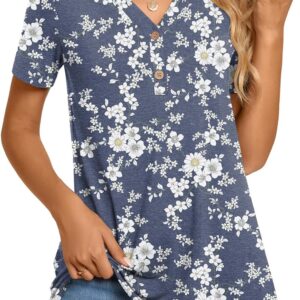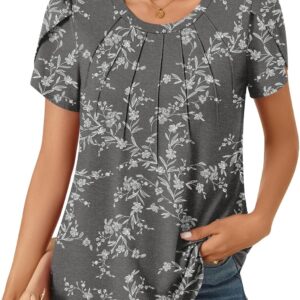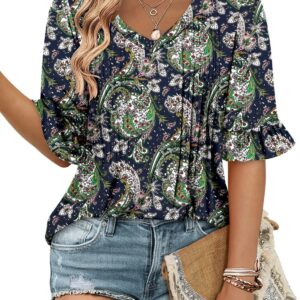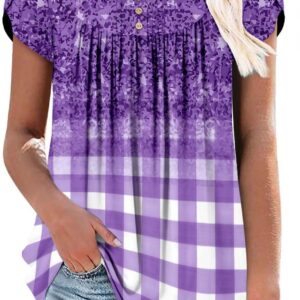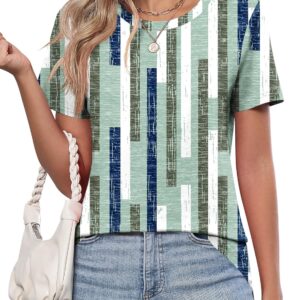Welcome to The point of view, a chain where HubSpotters evaluates the latest trades and promotes features.
“It doesn’t look like we’re your mother’s Facebook.”
This bold observation was circulated at Facebook’s tournament for younger creators in New York earlier this summer.
As the big social networks turn 20 this year, they know that much of their future depends on Generation Z. In particular, taking into account the top 52% recently ranked Facebook as their favorite platform, and the top 33 % of adolescents aged 13 to 17. use it as little as possible.
(By comparison: 72% of Generation Z consider TikTok their favorite platform, and 63% of young people actively use it.)
Can Facebook really show younger generations that there’s more to it than just “outdated” people and outdated memes?
To find the answer to this question, we want to start by explaining why Gen Z chooses to spend their social energy elsewhere.
And who could ask but a member of the amazing social group of HubSpot workers and think that I am one among all my superb Gen Z colleagues.
Featured items:
Here’s why Generation Z isn’t on Facebook
“I guess it all depends on the approach down to the type of content on Facebook,” says Reece Callaway, Brand and Social Content Material Manager at HubSpot.
“Since Facebook is one of the oldest, albeit spherical, social media platforms, we see numerous Millennials and Gen of culturally similar content.” they rely on their feeds, and Facebook is simply not the right place for that.”

And Callaway sets an excellent stage. The other aspect of Facebook’s rebranding effort is to position itself as a “hub for all the issues that occur culturally” within the platform’s underground.
Creating a culturally similar home for younger generations is the most important first step, on the other hand it is not necessarily very simple to achieve.
The Gen Z point of view
Justina Thompson, Associate Promoting Manager at HubSpot (and Gen Z villain herself), it seems that Gen Z isn’t on Facebook like other generations because it has a reputation for being family-focused rather than a true social platform.
“When I was emerging, my Facebook was monitored by my mother, and I used it primarily to stay in touch with aunts, uncles, and college friends whose profiles were also monitored by their relatives,” Thompson says.
“Over time, I began to want more autonomy in my online presence, which I may not be able to do through Facebook now.”

Those are also why I don’t have Facebook and I’m a millennial.
My timeline was a mix of random posts from my family members along with the occasional “hbd” from anyone I hadn’t interacted with since college.
It used to be onerous to curate my timeline and following to align with my interests.
Thompson also says Gen Z wants to mine their identity online, particularly where no one they know is looking. That’s why TikTok is so common for this age group of workers.
“People from anywhere can engage with the topic of your content and don’t have to know you in real life. There is no pre-existing effect on what they have of you.”
Thompson continues: “Facebook represents attachment to communities that already know you. Places like Instagram and TikTok have proven that you simply don’t want to go back to being close to someone for the purpose of making connections. This is the obstacle I imagine Facebook will have to overcome anyway.”

I agree: Facebook needs to make that rebound with the goal of competing. Channels like Instagram and TikTok have high-quality algorithms that allow users to easily curate their feeds and search for new people.
So now this all begs the question…
Can a work of art ‘rebrand’… or is it too late?
In thought, Thompson thinks a Facebook revamp could simply be a work of art. And I risk agreeing. Then once again he says it’s going to take a lot more than changing what we see on our feeds to get Gen Z back there once again.
“I guess investing in what’s already on the platform, like Facebook Marketplace, is a great place to start, especially because I’ve done some research with that part of Facebook in my opinion,” Thompson says.
And she or he is not alone. Our analysis shows that social media is the #1 channel. 1 of Gen Z for product discovery and that 43% have purchased something via social media in the last 3 months.
Plus, Facebook Marketplace is, truth be told, Gen Z’s big draw to the platform these days.
“However, Facebook is not simply its Marketplace. It’s a fusion of many things and all the pieces have to talk to each other in one way or another, that makes sense,” says Thompson.
He continues: “I guess TikTok does a great job of this. While I’m not a big fan of TikTok’s monetization efforts, they’ve worked well because they’re integrated into the topic of content that you understand as you scroll.
And since other channels like TikTok are already so common among Gen Z, Callaway says it will be difficult to redirect their attention.
“It’s going to be very costly to take Gen Z off the different platforms they’re already on,” he says. “I guess there’s a chance for [Facebook] to rename yourself. However, they have 20 years of popularity as works of art in opposition.”
![Facebook can appeal to Gen Z, graphic quote, I think there's an opportunity to do that [Facebook] to rename yourself. However, they have 20 years of reputation to work against, Reece Callaway, Brand and Social Content Manager at HubSpot](https://www.hubspot.com/hs-fs/hubfs/Quote%20Graphic%204%20-%20RC.webp?width=598&height=398&name=Quote%20Graphic%204%20-%20RC.webp)
It’s kind: Generation Z, however, sees Facebook as the social channel for older generations, full of inspirational quotes and boomer humor. It’s not impossible, on the other hand that reputation will be wonderfully costly to shake.
So, what is the essential thing to bring back Gen Z again?
Facebook says they are specializing in 3 key choices to get Gen Z to participate: Feeds, Reels, and Creators.
They plan to focus on additional similar content topics along with Facebook Marketplace, Facebook Courting, and groups and events to attract younger audiences.
From my point of view, this is not an unpleasant methodology. Previously, Thompson called Facebook Marketplace an excellent site that always offers tailored, audience-focused content, and wins.
Callaway says, “I imagine they would need to get several major creators that Gen Z likes to continuously post content on Facebook and do it in some way or another that makes Gen Z choose Facebook to check it out.” that material content on a defined platform.
He continues: “In conjunction with this, Facebook needs choices that can also be unique to Facebook, not just a replica of a popular feature from a defined platform.”
Thompson echoes the need for unique choices to appeal to younger consumers. Below are 3 ideas that she thinks Gen Z could also get serious about:
- A customizable timeline: “Make the timeline further customizable so Gen Z can unwind via random posts from family members while still getting the ideas we really want.”
- Easier monetization of content topics: “TikTok has the Writer Fund, on the other hand, it can be very difficult to get into… in all likelihood Facebook could just provide a few more of these suggestions.”
- App Integrations: “I really like that Tiktok has been further integrated with other apps – like CapCut – to make it easier for people to offer quick, ready-to-post content. I imagine that kind of integration like that could be great.
Anyone on Facebook, pretty much without a doubt:
Supply of symbols
Facebook + Gen Z = ?
As Thompson shared, “Facebook needs to remember that Gen Z’s priorities are suddenly changing. We’re serious about getting uncensored access to the ideas we need to cure problems and live life pleasantly.
It’s an uphill battle, and not a sure win, on the other hand I imagine Facebook can take steps to bring back Gen Z once again, as long as they take notes from the competition and refine the platform to meet their social needs.
Want to focus our concepts on a couple of particular topics? Enter your idea in this wayand in all likelihood we will simply publish it in a future post.
![]()
[ continue ]
wordpress Maintenance Plans | wordpress hosting
Read more


![“Now Not Your Mother’s Facebook” – Is It Enough to Download Now: The 2024 State of Social Media Trends [Free Report]](https://clickseekfind.com/wp-content/uploads/2024/10/Now-Not-Your-Mothers-Facebook-–-Is-It-Enough-to.png)



